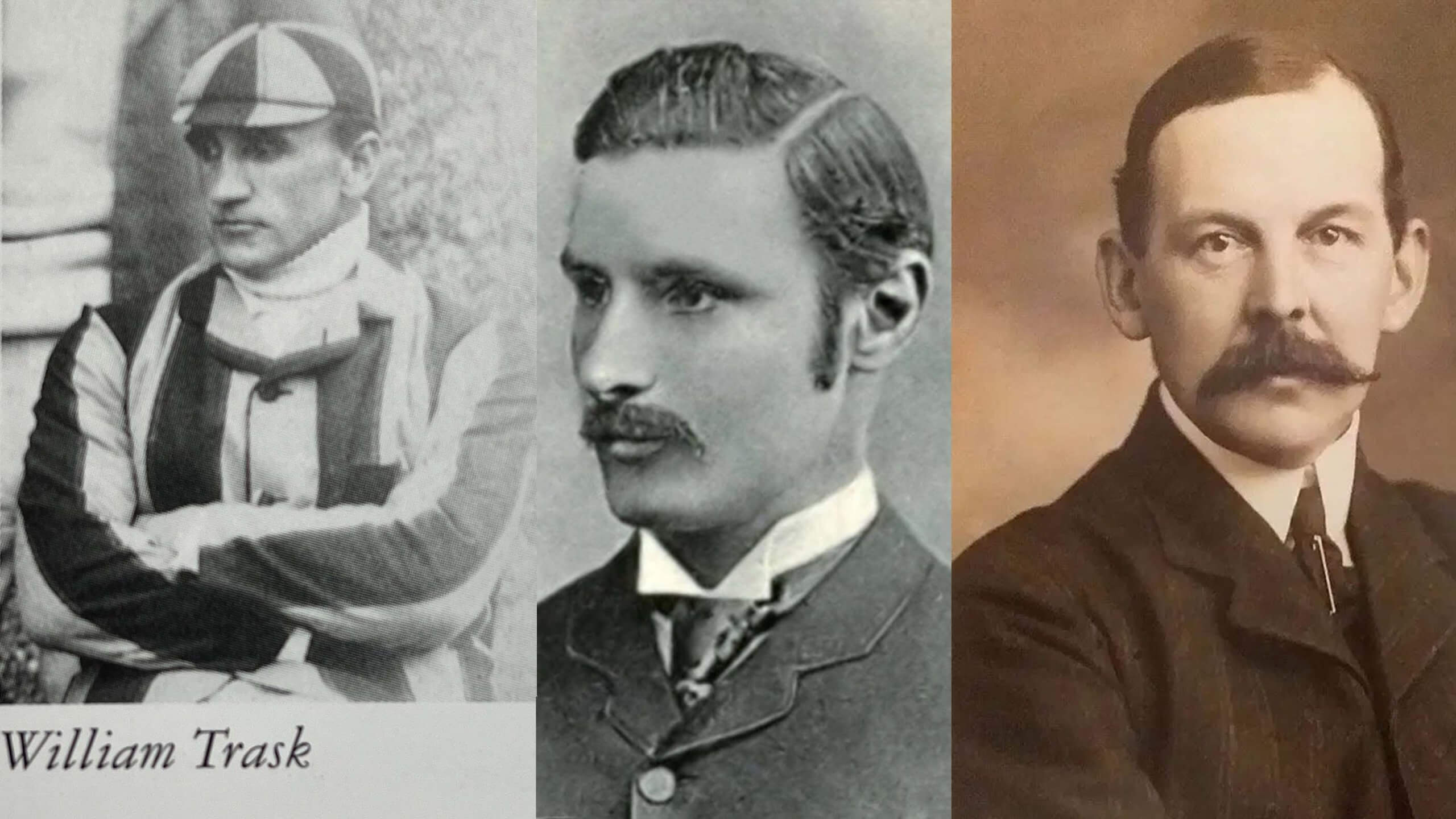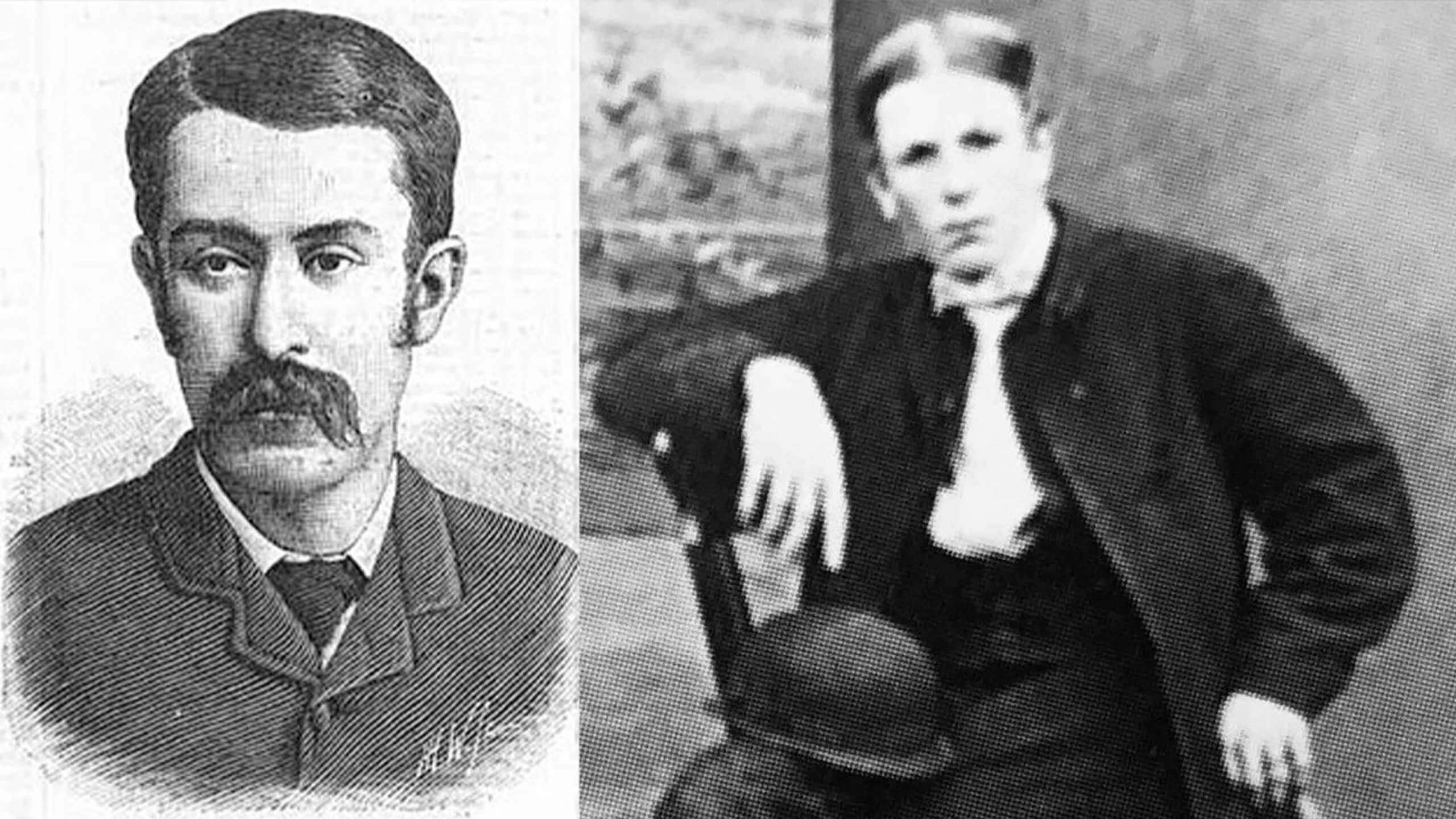
Those who came before: A look at Somerset’s First Class players – Part One
When Josh Thomas walked out to bat on his full Somerset debut against Essex, he became the 698th player to represent the Club in First Class Cricket.
With this in mind, we thought we would take a look back at those who have come before.
Over the next few weeks, we’ll be taking a look back at some of the previous 697 players who have worn the Wyvern (or donned the Dragon) in red ball cricket.
Somerset’s maiden First Class match came in June 1882 when we faced Lancashire at Old Trafford.
It was a game that saw the team from the West Country lose by an innings and 157 runs, but the 11 players who featured that day would go down in history as the Club’s inaugural First Class side.
#1 – WH Fowler
William Herbert Fowler was born in May 1856.
Two of his brothers attended Oxford University but he chose to travel for three years after leaving school. At the age of 22 he became a partner at an independent bank based in Wellington. However, this was not the career for him.
Described by Lillywhite’s in 1882 as “a giant hitter” and a “very fast and dangerous bowler”, he opened the batting for Somerset at Old Trafford on that day in 1882.
He went on to play 15 First Class matches for Somerset, scoring 546 runs with a top score of 139. He also took 22 wickets with a best of four for eight.
Fowler was elected Mayor of Taunton on two occasions, was a Director of the Castle Hotel for a time and was an award-winning grower of chrysanthemums.
He was an accomplished golfer who represented his country and came 26th in the British Open in 1900. He designed and managed a golf course at Walton Heath before designing further courses in the UK and America.
He died in 1941 at the age of 84.
#2 – Edward Sainsbury
‘Ted’ Sainsbury was born in Bath in 1851. He was educated at Sherborne School and his family were long associated with the Lansdown club.
Although he entered the world of business, he continued to play cricket whenever he could, and in 1876 he scored an unbeaten double century for Corsham and 116 not out for Lansdown in the same week.
His 25 First Class matches for Somerset yielded 788 runs with a best of 116. His underarm bowling claimed 25 wickets for the County with a best of four for 74.
He was named Somerset Captain in 1884.
After a hiatus from cricket, he was convinced to return to the game by his close friend W.G. Grace and turned out for Gloucestershire.
He retired to Weston-super-Mare and passed away in the town at the age of 79 in 1930.
#3 Harry George Tate
Born in July 1862, Tate left school early in order earn his keep following the death of his father and began working on the railway in Taunton whilst lodging in Trull.
He scored runs relatively freely for Taunton and in 1882 he was given the opportunity to make a name for himself at the age of 19 in a trial game where he represented Somerset Colts against Somerset. He made 45 as the Colts upset the main team.
His performance saw him named in the side to face Lancashire. Unfortunately, he became the first Somerset player to get a pair in First Class cricket. A statistic that also befell two other players later on during the match. He never got the opportunity to play for the Club again.
His work meant that he left Taunton for Reading a matter of days after his debut. He continued to play the game and regularly appeared for Caversham CC for 10 seasons, scoring runs abundantly.
Tate and his wife spent their final years in Bishops Hull, where he passed away at the age of 86 in 1949.
#4 Frederick Tristram Welman
Welman was born into a wealthy family at Norton Manor in February 1849.
A popular socialite, he was also a devout Catholic who had at least one audience with the Pope.
His First Class debut came for the MCC in 1874 before he joined Middlesex.
He captained Somerset in their opening First Class encounter, going on to represent the Club in 19 First Class matches. The wicketkeeper/batter scored 357 runs with a best of 43 and claimed seven stumpings and 12 catches.
His final appearance for Somerset came in 1901 at the age of 52. He died at the age of 82 in 1931 in South Ascot.
#5 Arnold James Fothergill
Fothergill was born in Newcastle in 1854.
As a teenager his performances with the ball saw him selected by Northumberland and from then he played for the Old Trafford-based Manchester Clifford club.
Possibly due to the lack of competitive club matches in the region, and possibly due to the cajoling of his friend (and Somerset amateur) William Massey, Fothergill arrived at lodgings in Taunton in 1880.
His 19 First Class matches for Somerset saw him score 384 runs whilst his fast-medium left-armers yielded 57 wickets with a best of six for 43.
He played in two Test matches for England against South Africa in 1889 taking eight wickets with a best of four for 19.
He was released by Somerset in 1890 but was awarded a benefit match in 1892.
He passed away at the age of 77 in 1932.
#6 Herbert Francis Fox
Born in Brislington in 1858, Fox attended Clifton College and University College, Oxford before becoming a school master at Bath College.
He featured for the Gentlemen of Somerset in 1877, but unfortunately his performances at Minor Counties level were never matched in First Class cricket.
He featured for Somerset in 10 First Class matches and scored 133 runs.
His major accomplishments came off the field rather than on it, with his books on the Classics finding a wide audience.
Between 1902 and 1908 he played for Oxfordshire and Suffolk, making his final appearance at the age of 50.
He died in King’s College Hospital, London at the age of 67 in 1926.
#7 Frederick John Potbury
Potbury was born in 1862 in Ottery St Mary to a well know family from Sidmouth. Indeed, a furnishers in the town still bears the family name.
He initially trained as a draper’s assistant in Taunton High Street before setting up the furniture retailers with his brother back in Devon.
As well as trying his hand as an auctioneer and an estate agent, he played cricket and rugby in Sidmouth.
Although he represented both Somerset and Devon in cricket, his only First Class appearance for Somerset came in the match at Old Trafford during which he failed to score a run.
At the outbreak of the First World War, he volunteered and rose to the rank of Major.
He passed away at the age of 80 in 1943.

#8 Henry Fox
Fox was born in Wellington in 1856.
His three First Class matches for Somerset yielded 16 runs but he held the role of Vice President for a number of years.
Away from the cricket field, he was instrumental in the creation of Wellington Rugby Club in 1874 where he fulfilled the roles of treasurer, coach, captain and founder. He also played his part in the formation of a county rugby club which he went on to captain. After injury forced his retirement from rugby he became a referee.
By the mid-1880s he had taken up mountaineering. After successfully conquering the Eiger and the Matterhorn, he and two colleagues took on the challenge of becoming the first to scale Koshtan-Tau in the Caucasus mountains in 1888.
Although search parties discovered base camp supplies and a bivouac, Fox was never seen again. It is assumed that he was the victim of an avalanche.
A stand was built and named after him at Wellington Rugby Club and the pavilion at his local cricket club was named in his honour.
#9 William Trask
Trask was born in 1859 in Norton-sub-Hamdon.
A prolific run-scorer for Lansdown CC, he played First Class cricket for Somerset on 47 occasions, scoring 1216 runs and taking 12 wickets.
In 1891, Trask was married in a lavish society wedding in Frome before being appointed as Chair of the Ham Hill and Doulting Stone Quarries.
Other than cricket, he also played golf to a high standard, and in 1936 the Bath Chronicle wrote a report on his seventh hole in one at the age of 77.
He died in Frome in 1949 at the age of 89.
#10 Horatio Ernest Hall
Hall was born in Bedminster on April 25th 1861.
Both ‘Ernie’ and his brother would grow up to play for the town’s cricket club and eventually became school masters in the area. His brother also represented Somerset in First Class cricket, and it was Ernie’s preference to be known by his middle name that resulted in many people thinking that it was actually his brother, Henry, who featured in the opening First Class match.
A mainstay of the Bedminster side, he featured in four First Class matches for Somerset between 1882 and 1885, scoring 43 runs and taking four wickets.
He died at the age of 58 in Clifton in 1919
#11 Henry Scott
Born in 1851 and hailing from Nottinghamshire, Scott was one of 15 children. He began working life aged just eight as a winder for a stocking framework knitter. He remained in the business until his 70s but in his 20s he combined the work with cricket in the summer.
In 1876 he spent time in the West Country playing in Taunton, Ilfracombe and Weston-super-Mare. He was employed as a coach at Clifton College in 1882.
After qualifying for Somerset through residency, he made a number of important contributions for the Club before First Class status was achieved. His two First Class appearances for Somerset saw him score 12 runs and take two wickets.
Known as ‘Harry’, he lived in the house in Sutton-in-Ashfield that he had purchased in 1891 with his earnings as a player for the remainder of his life. It is there that he died aged 90.
The author is indebted to the excellent “Somerset Cricketers 1882 – 1914” by Hill and Phillips.
)}})



















